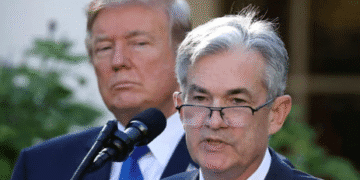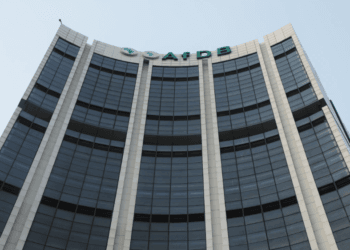Athira Sethu
Kochi, 23 April 2025
On Tuesday, President Donald Trump made a ‘U’ turn, indicating he had no intention of dismissing Jerome Powell, the head of the Federal Reserve. This follows Trump’s recent public criticism of Powell, which had rattled financial markets and created doubts about the independence of the U.S. central bank.
Trump’s remarks were interpreted as a good omen for Wall Street. After the news, stock futures increased almost 2% in after-hours trading, reflecting relief from what had seemed to be growing political meddling in monetary policy. Trump had only days before criticized Powell for not cutting interest rates more since he took office in January. The president’s repeated criticism had created uncertainty, which resulted in falls in stocks, bonds, and the U.S. dollar.
Despite backing off from the idea of firing Powell, Trump still insisted that the Fed should lower interest rates. He stated, “I’d like to see him be more active in lowering the rate,” adding that now is a perfect time for a rate cut. In Trump’s opinion, the declining prices for groceries and energy implied that inflation could no longer be a problem, and efforts should instead be directed towards sustaining economic growth.
But Powell has cautioned that Trump’s belligerent trade tariffs may make the Fed’s work more difficult. If tariffs induce inflation and also slow down the economy, the central bank may have to take difficult choices about whether to battle inflation or deal with unemployment. Powell’s caution underscores the challenging balancing act that the Fed has to perform, particularly with the current trade tensions.
Trump has not gotten along with Powell since 2018, when Powell started raising interest rates, something Trump was against. Last week, Trump escalated, calling Powell a “major loser” on social media and implying that if he wanted Powell gone, he could do it fast. The implication was that Trump would try to remove Powell from office. But the Federal Reserve Act of 1913 states that the chair can be fired only for misconduct, not for differing with the president’s policies. Powell has stated unequivocally that he will not step down and that the independence of the Fed is protected by law.
The market’s upbeat reaction to Trump’s remark about Powell also indicates relief that the president is unlikely to act on his threats of drastic measures against the Fed chair. Nevertheless, the outlook for interest rates is still uncertain, with speculation of possible cuts this year being downgraded.
Meanwhile, Trump’s remarks on a possible trade agreement with China also lifted the markets. He indicated that tariffs could be lowered as part of a trade deal, and this improved investor sentiment and helped fuel the market recovery.
Although Trump has retreated somewhat from his previous bluster, the fact that tensions between the president and Powell continue, along with the ambiguity regarding interest rates and trading policies, ensures financial markets will remain vigilant.




















